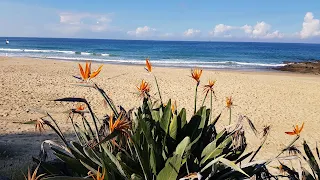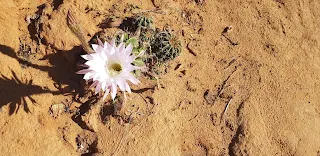Kindly Yours - A collection of writings, thoughts and images. This blog does contain third party weblinks. No AI content is used.
Saturday, 3 July 2021
Talking About Nations
Around the world, the concept and practice of having nation states are still thriving. Remember how every country wanted to have an official airline?
National pride drives rivalry, competition and passion on many fronts such as sports, trade, use of technology, economic power and standard of living. There can be misuse of nationalism, as evidenced in wars fought, political hostility, tribal differences and selfish handling of epidemics.
Nations arose in history for self preservation, cultural conquests, religious consolidation, economic expansion and financial viability.
Nations expanded in size usually due to subjugation of weaker forces, whether in terms of technical, military or strategic might. Once the age of colonisation whittled away, there was a boom in the rise of the so many entities that are now members of the United Nations.
How nations create and agree on boundaries can be based on geography. You can observe the flow of major rivers, insurmountable ranges, ocean divides and differing climate zones as serving natural divides.
On the other hand, the construction of a huge canal created Panama. The meeting of waterfalls can often be where three nations meet. The world's great rivers often have separate countries located in their mountain source, fertile plains and when it fans out to a delta near the sea.
Europe is often quoted to be a historical hinterland of often changing borders, as armies march over, philosophies run amok and diverse cultures interact.
Relatively new nations arise when there is an overlay placed on various indigenious lands. An example is Canada, but that name is related to a Huron-Iroquois phrase meaning a village, "Kanata".
The names of contemporary nations can be intriguing. There are patterns - some are named based on obvious distinct cultures like India, China, Japan, Russia, Ireland, Thailand and Vietnam.
Other name patterns can have religious or tribal roots - I refer to Israel, Saudi, Ethopia, Egypt and Iran. Most of these nations are in the so called cradle of civillisation.
In Central Asia, there are several nations that utilise the suffix "tan".
Yet there are other nations which have names that seem neutral to racial or religious connotations. I think of Australia, the United States, the United Kingdom, Micronesia and Indonesia.
And then there are those which highlight a specific race, even if the nation in reality is multi-cultural. Malaysia, Myanmar, France and Germany come to mind.
There are countries which still bear the names of its colonial past. The Phillippines still honour a past Spanish King in its name. New Zealand refers to its "discovery" by Dutch adventurer-sailors. Greece is proud of its longer term links to the forebearers of Western civilisation.
South and Central America have nation states named in the language of their European conquerors, with seeming no trace of the previous Inca, Atzec and Maya predecessors.
Island states are best to retain their long used place names. Fiji, Singapore, Samoa, Mauritius and Malta come to mind.
There are nations in which their socio-political structures were formed under colonial rulers. The seeds of their current problems have long been embedded in this manner. I refer to Malaysia, India, South Africa and Brazil - to name a few.
There are a few political entities that have problems from unresolved wars - North and South Korea is an example. Relatively tiny states exist in Europe - Andorra, Luxembourg and the Vatican illustrate this.
There are countries that have territories separated by sea. Denmark has Greenland, the USA has Hawaii , the Federation of Malaysia is split into two and the UK has Northern Ireland.
Greece, Indonesia and the Phillippines are based on a collection of many isles. Nations that are landlocked may seem to need access to sea routes, but some like Switzerland do well without. Russia has access to wamer water ports in the Crimea, but Canada and the Scandinavian countries have only cold ocean ports.
#yongkevthoughts
Monday, 28 June 2021
Sunday, 20 June 2021
Sunday, 13 June 2021
The G7 today
The G7 looks like an alumni of the victors from the two devastating world wars of the 20th century.
Definitely not, as historical enemy states from that era, Japan and Germany, are sitting on the table as part of the seven core members.
North America and Europe contribute most of this so called select group of seven nations. Past allies like Russia and China from those world wars are now viewed by this mostly Western Alliance as hostile.
Asia-Pacific is represented only by Japan.
Is the G7 a group of the current and growing powerhouse economies? Banish that idea - Brazil, India, Indonesia and China are not in this group of seven. Smaller economies like Australia and South Africa are asked to attend on the side lines.
Someone I know pointed out to me that the G7 nations, except for Canada, all have USA military bases on their soil.
Some quarters view the G7 as a core military alliance in a future world war scenario for the 21st century. Instead of seizing an opportunity to further cooperate for peaceful global development, this interpretation emphasises the significance and powerful influence of weapons producers and traders in our politically unstable world.
Does the G7 represent one side of a potential clash of civilisations? Or is it a manifestation of one side of an evolving trade war?
Some Asians I know view the G7 as an alliance of Western powers, trying to ensure that its long held dominance in geopolitics is not whittled away. The problem with this opinion is why Japan is part of and Russia is not part of the G7.
Yet, Africans, Asians apart from Japan, Latin Americans, Indigenous nations and Middle Easterners are notably not members of the G7. So it is definitely an exclusive club.
More likely the G7 is an alumni of past and still current dominant powers, which increasingly have to deal with the realities, on various growing fronts, of a quick changing contemporary world.
#yongkevthoughts
Tuesday, 8 June 2021
Australia - Give It A Fair Go
How many club memberships, living in Australia, have you chalked up over the years? I am not referring to exclusive country or city clubs where you network with the rich, politically connected and inner sanctum of useful contacts. The prevalence of these other clubs I am talking about here, across the many suburbs of this Great Land, often depend on turnover, a huge but cheap membership base, gaming machines, a bistro of varying quality and some measure of community activities.
Increasingly significant is the local barista. Over many years, so many blends of coffee beans have come out of Australia, establishing Aussie brands in this space with a strong reputation beyond its shores. The routine of having brunch or breakky has contributed to the new styled cafes mushrooming with new fangled food recipes accompanying the beverage. Tea has nevertheless not lost its embedded loyalty, together with other penchants for avocado smash, sourdough toasts, Granola mixes and sauteed mushrooms.
Beer craft and wine appreciation communions now express themselves in watering holes not just in the cities, but also in populated regional hubs. The accompanying pizzas, burgers and randomly performing local musician adds extra zest and layers of attraction to visit such venues. The traditional Aussie pub though still stands tall, but can face challenges without the tribes gathering pre and post footy games, the family gathering for a wholesome Aussie roast and its truly vital role in the fabric of its local community.
And then in capital cities, Asian run bistros seem to be a contemporary cornerstone of those RSLs and comparable clubs. Vietnamese and Chinese operators provide alternative menus to pasta, Wellingtons, schnitzels and salads.
Migrant food has also been hipsterised and hybridised with fusion offerings, contemporary presentations and more use of alternative ingredients. Outlets offering such experiences are evolving a unique trend in the development of what foreigners increasingly acknowledge as uniquely Australian. Drop by a new styled bakery run by Koreans, French and Japanese here - while we still have access to traditional stuff from the Italians, Lebanese and our grandmother's Aussie cookbooks.
The roadhouse is so important for many remote communities, truckers and tourists out in the Woop-Woop. It is a petrol station, sandwich bar, souvenir shop, grocery outlet, cafe, toilet stop, rest area and contact point for many both enduring and enjoying the vast, seemingly empty land that is Australia.
Our borders with other countries has been closed for so many months, but we still enjoy the Long Drive within our own state or when varying governments permit, across to other states on this continental island. Straight roads for many kilometres delightfully surprise our visitors - and also coastal scenic drives, sojourns across farmlands, adventures across deserts or Alpine country. What most of us agree upon is to avoid traffic jammed scenarios in our capital cities during the so called rush hour - or the increasing high tolls on roads labelled as Connex.
The water source, whether it is a constructed indoor or outdoor pool in suburban hubs, lake or a rock pool along one of our countless beaches, beckons many and perpetuates the influence of water in the life of many Aussies.
Most Aussies still reside within 100 km of its magnificient coasts. Swimming and surfing are anchor sports, whether competitive, recreational or
for exercise, in the fabric of this Great Southern Land. Not many activities are as physically wholesome, mentally refreshing and rewarding as interacting with water.
Expressing one's self, taking part in public protests and telling a yarn also run through the veins of Aussie history. At times, the giving of opinions, as overly encouraged by social media channels, politics and so called democratic freedoms, can lead to no action and just talk. The contemporary disease of mixing of facts with diverse views, manipulation of selective truth and aggressive marketing agendas by strong vested interests, has however thrown more than a spanner in this unrelenting confusing cauldron.
The unique spirit of being a larrakin still is very much alive in the Australian character. However, this can be challenged by some aspects of a rising trend of political correctness which can at times lose this essential quality of humour and humaneness in negotiations, dealings and various transactions of society.
Australia has always thought itself as the Land of the Fair Go. Building upon layers of viable cultures, philosophies and traditions, we and our society have special routines, daily regimes and refreshing attitudes, when we zoom in on the beneficial and positive ones. In the course of a day, each of us can find opportunity to have that healthy breakky, soak in a rewarding outdoor activity, press on with that work challenge, catch up with mates and try that unusual dish down the road.
#yongkevthoughts
Subscribe to:
Posts (Atom)
The Cycle of Addiction
Introduce a specific thing or experience as exclusive, inviting or of curiosity. Offer relief from the drudgery of routine or regime. Packag...
-
"There will be great trouble in the North", so goes the quote attributed to Nostradamus, who occasionally is brought up in the me...
-
Happy 60th, Singapore. 9 August 1965 to today. A nation whose leader seriously reckoned would not last on its formation. An island republic...
-
The alluring aroma of onions on toast with poached egg is what drives me to make them at home first thing in the early morning. But I still...











































